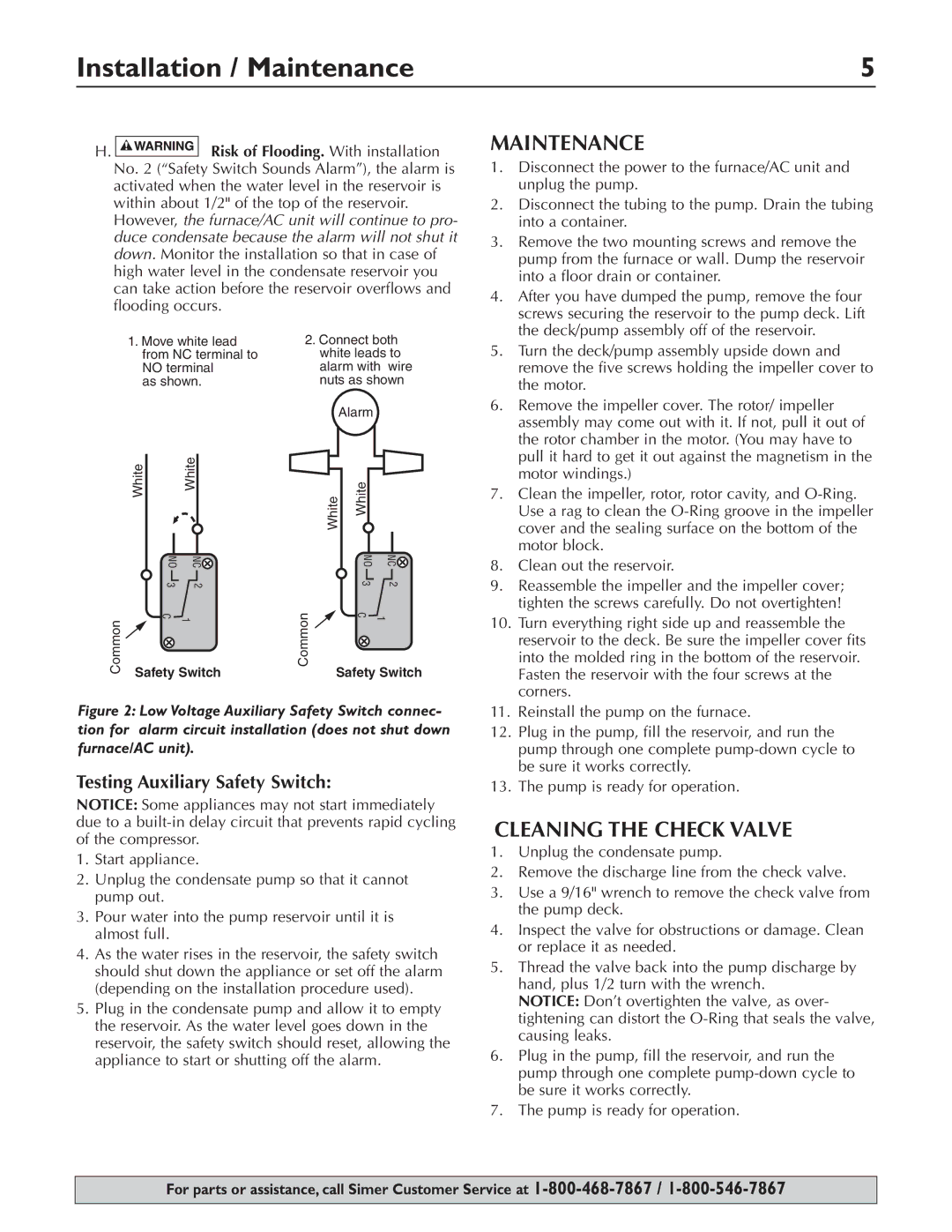2520ULST specifications
The Simer Pumps 2520ULST is a robust submersible pump designed primarily for residential and light commercial applications. Known for its reliability and efficiency, the 2520ULST is engineered to handle a variety of water removal tasks, including sump pumping, drainage, and light sewage applications.One of the key features of the Simer Pumps 2520ULST is its solid construction. The pump is made with high-quality thermoplastic materials that offer excellent durability and resistance to corrosion, ensuring a long service life even in harsh environments. The lightweight design allows for easy installation and portability, making it an ideal choice for homeowners and contractors alike.
The pump is powered by a powerful 1/2 horsepower motor, capable of moving up to 36 gallons per minute. This impressive flow rate allows the 2520ULST to efficiently handle larger volumes of water, whether it is being used for draining flooded basements or removing water from construction sites. Additionally, the pump has a maximum head of 27 feet, which provides versatility in various applications.
The Simer Pumps 2520ULST incorporates advanced technology with its automatic float switch, which ensures reliable operation without the need for constant monitoring. This feature allows the pump to turn on and off automatically based on water levels, providing peace of mind to users who may not always be present to oversee the operation. The float switch is designed to minimize the risk of clogging or jamming, ensuring smooth and continuous operation.
Another notable characteristic of the Simer Pumps 2520ULST is its ability to handle solids up to 1/2 inch in diameter. This capacity makes it suitable for handling some light sewage or debris, increasing its versatility for various pumping needs. Moreover, the pump features a thermal overload protection system, which shuts down the motor when it overheats, therefore extending its lifespan and preventing potential damage.
For those seeking reliable, efficient, and durable pumping solutions, the Simer Pumps 2520ULST stands out in the market. With its combination of solid construction, high performance, and user-friendly features, this pump is an excellent investment for homeowners and professionals dealing with water removal needs. Whether for routine drainage or emergency situations, the 2520ULST delivers exceptional performance that users can depend on.

